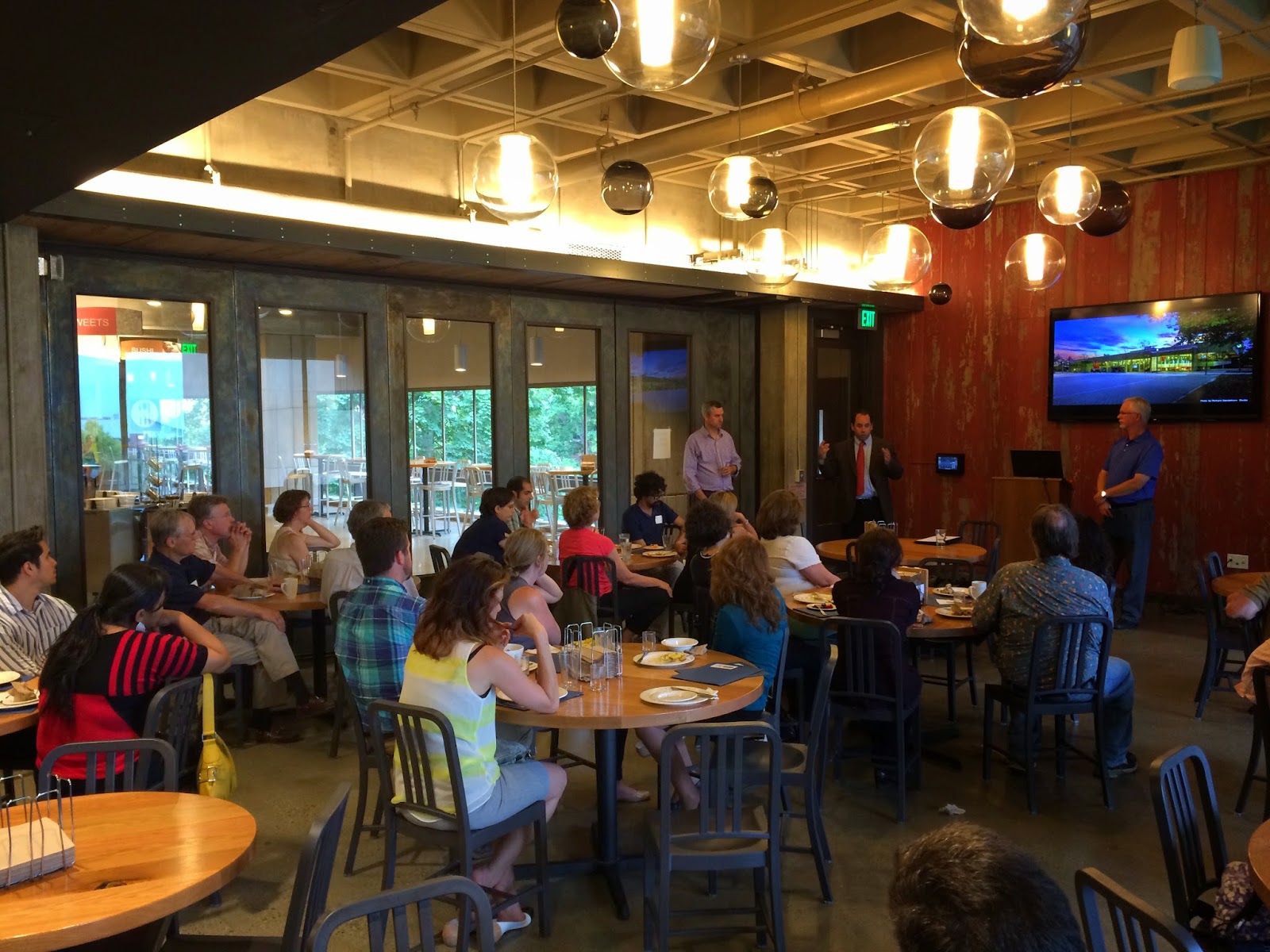Summer is now in full swing, but the green buildings haven't stopped rolling.
First of all, big news is that the property-assessed clean energy (PACE) finance legislation we have been working on with Senator Brian A. Joyce has PASSED yesterday at the Statehouse. Senate Bill 2255 (replaced S.177) earned unanimous approval on a roll call 38-0 vote. The bill goes to the House - so we still have work to do but it is looking like the rejuvenation of PACE in Massachusetts is moving forward. We can expect to see a lot more renewable energy, energy retrofits and resiliency investments in the coming years. I haven't found any news item on this yet, but we will report to you all as soon as we see something.
Newly LEED Certified Buildings since the beginning of July include:
Upcoming events for the USGBC Massachusetts Chapter:
First of all, big news is that the property-assessed clean energy (PACE) finance legislation we have been working on with Senator Brian A. Joyce has PASSED yesterday at the Statehouse. Senate Bill 2255 (replaced S.177) earned unanimous approval on a roll call 38-0 vote. The bill goes to the House - so we still have work to do but it is looking like the rejuvenation of PACE in Massachusetts is moving forward. We can expect to see a lot more renewable energy, energy retrofits and resiliency investments in the coming years. I haven't found any news item on this yet, but we will report to you all as soon as we see something.
Newly LEED Certified Buildings since the beginning of July include:
- 300 Concord Road in Billerica MA, certified LEED EB:OM v2009. This is a 378ksf office building. Congrats to Gary Thomas (LEED Project Admin) at CBRE and the entire team.
- UMass Amherst - Hampshire Dining Commons (40,000sf) just attained Gold in LEED NC v2009. Congrats to Dee Spiro at Bergmeyer and that team on a great job.
 |
| The UMass Amherst Hampshire Dining Commons |
Upcoming events for the USGBC Massachusetts Chapter:
- 7/16 (Wednesday) at 4:30pm - Credential-maintenance webinar on Green Schools (and new construction) in Boston. The story of the Hood River Middle School.
- 7/17 (Thursday) at 5:30pm - Healthcare Focus Networking Night at Spaulding Rehab Hospital in Charlestown. Join our sponsor, AtSite, to hear about the facility, designed for resiliency, with our tour guides from the architects, Perkins+Will.
- 7/23 (Wednesday) at 6pm - our Oceanview Summer Social in Boston - put on by our Emerging Professionals and open to all. Come for free appetizers from our event sponsor Forbo Flooring. It will be a great time!
Thank you for your support. See you soon.
 |
| Another picture at UMass Amherst: any guesses? |



